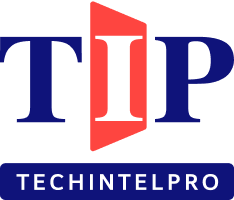
.jpg)

Pillar Security, a leading AI security company, has been recognized by Frost & Sullivan as the 2025 Competitive Strategy Leader in the global generative AI security industry. This top honor highlights Pillar's innovative platform, which provides comprehensive protection across the AI lifecycle, enabling organizations to scale AI adoption confidently while addressing emerging threat vectors beyond traditional software environments.
Frost & Sullivan's evaluation praised Pillar's depth and breadth of technology, emphasizing its ability to harmonize security, compliance, and innovation. Unlike vendors adapting existing tools, Pillar's platform is purpose-built with a DevSecOps-for-AI approach, embedding security at every AI lifecycle phase. This enables fast scaling without visibility loss, ensuring safe and responsible AI deployment. The full evaluation report is available for download.
Pillar excels in AI asset discovery, integrating with source control, ML Ops, and data infrastructure to uncover shadow AI models, prompts, and datasets. Its adversarial red teaming simulates multi-step threats using white-box and black-box methods, testing AI resilience under real-world conditions. Deployment-phase guardrails are model-agnostic and adaptive, evolving from red teaming and usage patterns to block prompt injections dynamically. The enterprise-ready architecture supports hybrid, cloud, and on-premise setups, backed by SOC 2 Type II certification, role-based access controls, and SIEM/compliance integrations.
Clients integrate Pillar as a trust foundation for AI systems, particularly in regulated sectors, valuing its strategic value and retention potential. Claudio Stahnke, Frost & Sullivan Industry Analyst, noted Pillar's price-to-performance value: “Despite being in the early stages of growth, the company delivers outsized returns through a modular platform architecture that can be implemented rapidly. Customers are not forced into an all-or-nothing deployment; instead, they can target critical lifecycle phases, such as guardrails for runtime protection or red teaming for pre-deployment validation, allowing security investments to scale in tandem with AI maturity.”
Dor Sarig, CEO and co-founder of Pillar Security, expressed gratitude: “To anyone tasked with building an AI security roadmap: the Pillar team would be honored to serve as your partner on that journey. We appreciate the time and care that Frost & Sullivan put into their evaluation of Pillar, which positions us as a trusted guide for enterprises navigating the complex terrain of generative AI risk. Digital trust is not just a differentiator in AI security, but a requirement. We look forward to helping more enterprises lead with confidence and remain resilient in the face of change by shaping not only how AI is secured, but also how it is responsibly deployed and governed.”
Pillar's platform operates as a recursive defense loop, with components feeding insights for self-reinforcing protection. This has secured deployments with Fortune 500 organizations in high-risk industries, establishing Pillar as a foundational security layer for scaling GenAI responsibly.
Frost & Sullivan's recognition underscores Pillar's role as a trusted ecosystem builder, empowering enterprises to innovate securely amid evolving AI threats and regulations.
For six decades, Frost & Sullivan has been world-renowned for its role in helping investors, corporate leaders, and governments navigate economic changes and identify disruptive technologies, megatrends, new business models, and companies to action, resulting in a continuous flow of growth opportunities to drive future success.
Pillar Security is a leading AI-security platform, providing companies with full visibility and control to build and run secure AI systems. Founded by experts in offensive and defensive cybersecurity, Pillar secures the entire AI lifecycle, from development to deployment - through AI Discovery, AI Security Posture Management (AI-SPM), AI Red Teaming, and Adaptive Runtime Guardrails. Pillar empowers organizations to prevent data leakage, neutralize AI-specific threats, and comply with evolving regulations.
